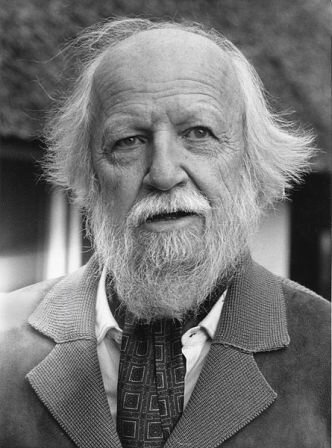If you love to read novels or plays, one of these following facts about William Golding may attract you. Golding’s collection of works are really great to read. He was one of the best English novelists, playwrights and poets who won a Nobel Prize in Literature laureate. Golding is also best known for his novel Lord of the flies and was awarded the Booker Prize for literature in 1980 for his novel Rites of Passage. Rites of Passage is also the first book in what became his sea trilogy To the Ends of the Earth. To get to know more about him, here are some other facts about William Golding you may like.
Facts about William Golding 1: Greatest British Writer
William Golding was awarded a KBE. In 2008, The Times ranked Golding third on their list of “The 50 greatest British writers since 1945”.
Facts about William Golding 2: B.A Degree
Golding took his B.A. degree with Second Class Honours in the summer of 1934, and later that year a book of his Poems, was published by Macmillan & Co., with the help of his Oxford friend, the anthroposophist Adam Bittleston.
Facts about William Golding 3: Marriage
Golding married Ann Brookfield, an analytic chemist, on 30 September 1939. From their marriage, they had two children, Judith and David.
Facts about William Golding 4: War Service
William Golding joined the Royal Navy in 1940. During World War II, he fought in the Royal Navy (on board a destroyer) and was briefly involved in the pursuit and sinking of the German battleship Bismarck.
Facts about William Golding 5: Death
In 1985, Golding and his wife moved to Tullimaar House at Perranarworthal, near Truro, Cornwall, where he died of heart failure, eight years later, on 19 June 1993. He was buried in the village churchyard at Bowerchalke, Sout Wiltshire, near the Hampshire and Dorset county boundaries.
Facts about William Golding 6: Lord of the Flies
In September 1953, after many rejections from other publishers, Golding sent a manuscript to Faber & Faber and was initially and was initially rejected by their reader. His book however was championed by Charles Monteith, a new editor at the firm. Monteith asked for some changes to the text and the novel was published in September 1954 as Lord of the Flies.
Facts about William Golding 7: Awards
Golding won the James Tait Black Memorial Prize in 1979, and the Booker Prize in 1980. In 1983 he was awarded the Nobel Prize for Literature, and was according to the Oxford of National Biography “an unexpected and even contentious choice”. In 1988 Golding was appointed as a Knight Bachelor.
Facts about William Golding 8: Fictions
William Golding has successfully published many works, including novels, plays and poems. Some of them are Lord of the Flies, The Inheritors, Pincher Martin, Free Fall, The Spire, The Pyramid, The Scorpion God, The Brass Butterfly, Darkness Visible and The Paper Men. The number of his works are incredible.
Facts about William Golding 9: Nonfictions
William Golding has also successfully written few of nonfiction work, including The Hot Gates (1965), A Moving Target (1982) and An Egyptian Journal (1985).
Facts about William Golding 10: Novel Draft
Before the death, Golding left the draft of a novel, The Double Tongue, set in ancient Delphi, which was published posthumously.
Those who love to read literature works may have considered those following facts about William Golding really useful. Hope you would find those William Golding facts really interesting.










 www.PortlandPayday.Loans
www.PortlandPayday.Loans